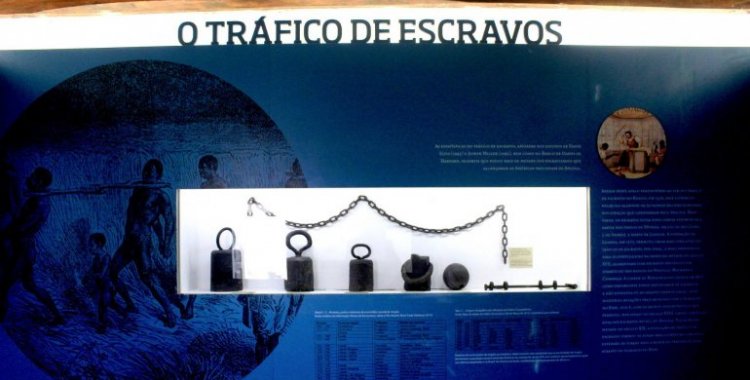In addition to members of the Tucker family, the tour group also includes one of the vice governors of Virginia, as well as two junior basketball teams, one of which is the current champion of the United States of America, writes the Jornal de Angola.
The tourists' agenda during their visit to Angola envisages carrying out various activities in Luanda, Malanje and Cuanza Norte. According to Jornal de Angola, these are intended to make known the sites of concentration and shipment of slaves, as well as to hear from local sources the history of this procedure.
According to cultural researcher Afonso Vita – who is also the mentor of the tourist and cultural route project for slaves in Angola and was speaking this Wednesday at a round table on the theme "Abolition of the Slave Trade, Legacy and Reflections", as part of the celebrations of the International Day of Remembrance of the Slave Trade and its Abolition, marked on the 23rd of August –, many of the tourists are people whose ancestors left Angola.
As a result of his doctoral thesis in Coimbra (Portugal), the project also plans to launch a multidisciplinary festival in 2024, reports Jornal de Angola.
On the occasion, the cultural researcher said that on the African continent there are "examples to be followed" of countries that have "well-structured projects in this area of memory tourism".
"In Africa we have examples to be followed, as is the case of Benin, Senegal and Ghana, which have well-structured projects in this area of memory tourism. It must be said that ours will be a little different, because we introduced the festival that it is to be the anchor for attracting visitors. This element is new", he said, quoted by Jornal de Angola.
Thus, he informed that the place where the festival will take place will be in Mbanza Kongo. "The venue for this festival will be in Mbanza Kongo and the accommodation element is quite crucial, because it is almost non-existent there. But efforts are being made so that, by next year, we have at least 100 to 150 rooms guaranteed. We are working for that. Our city, which is a World Heritage Site, must have the necessary accommodation", he said.
In terms of gains for the country with regard to memory tourism, he considered that it could trigger job creation, as well as encourage cultural production in the localities.
"What we are doing is already a positive sign in what is the dissemination of our historical past, that means that it will already influence many people on the subject", considered Afonso Vita, who, quoted by Jornal de Angola, added: "Our authorities are also monitoring and ensuring that this knowledge is transmitted through tourism, which allows for a better experience in contact with history and its impact on the lives of Africans".
Vladmir Fortuna, director of the National Slavery Museum, who also participated in the round table, said that it is in the museum "where the various points of this process are reflected, such as the fortresses, palaces and colonial farms. of the museum to increasingly consolidate the route of slavery and the slave trade".
"Visits to the museum have been growing in recent years, there is an increasing interest on the part of national and foreign researchers in the history of slavery and the slave trade", he added.
Among other aspects, the museum director also made it known that, recently, they were in the United States and contacted "institutions that also work in the preservation of the memory and history of the slave trade, having established the intention of exchanging information and sharing the collection ".
"We think this is a positive note in this sense. The academic segment that visits the slavery museum the most are general education students, including children and teenagers, which shows the interesting work that teachers have been doing in terms of activities outside from the school", he said, quoted by Jornal de Angola.







